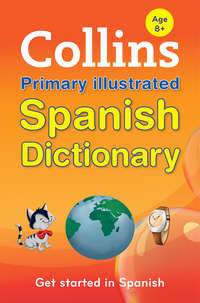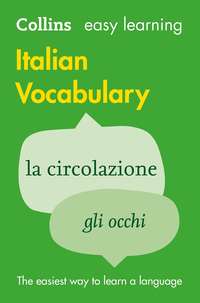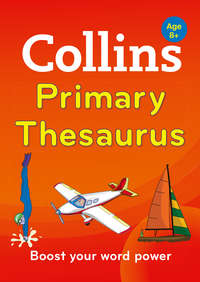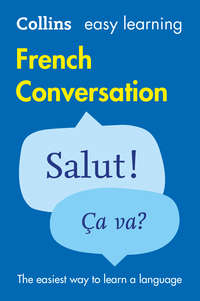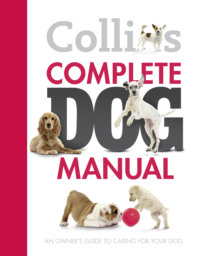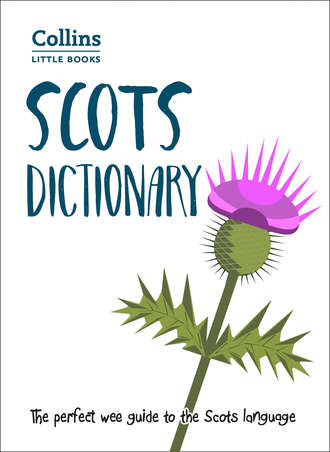
Полная версия
Scots Dictionary: The perfect wee guide to the Scots language
buckie
buckie A buckie is a whelk, a type of shellfish with a snail-like shell, some varieties of which are edible. [The term comes from buccinum, the Latin name for a whelk]
Buckie Buckie is an informal name for Buckfast, a tonic wine (brewed in Buckfast Abbey, Devon), the cheapness and strength of which make it popular with those whose aim is to get drunk as quickly as possible: C’mon we’ll get blootered on Buckie before the game.
Buddy A person from Paisley is sometimes referred to as a Paisley Buddy. St Mirren, Paisley’s professional football team, are nicknamed the Buddies. [The word comes from the pronunciation of the Scots word body, a person]
Bully Wee The Bully Wee is the nickname of Clyde football team. [The name comes from bully, an old-fashioned term meaning fine or admirable, plus wee reflecting the fact that Clyde were always one of the less powerful and successful of the Glasgow teams. (They now play in Cumbernauld)]
bum To bum is to boast or brag. A boaster or conceited person can be spoken of contemptuously as a bum. [These senses come from the earlier Scots sense, to make a humming or buzzing noise]
bumbaleerie (bum-bah-leer-ree) The bumbaleerie is an informal, often jocular, term for the backside.
bumfle A bumfle is a wrinkle, crease, or fold in something. If something is bumfled or bumfled up, it is untidily wrinkled or creased: My skirt had got all bumfled up at the back. [The word comes from the earlier Scots bumph meaning a lump or bump]
bummer In informal speech, a heid bummer is someone who holds a position of power or authority in a place or organization: The site gaffer told his men to make an effort because lots of heid bummers drive past there.
bum up To bum something up is to claim that it is very good, or to make it out to be better than it really is: Ach, it was okay, but it’s no all it’s bummed up to be.
bunnet The word bunnet usually refers to a man’s soft flat peaked cap. It can however be used of almost any flattish male headgear, such as a Tam o’ Shanter or balmoral, and is sometimes also used of similar hats or caps worn by women.
bunnet hustler A bunnet hustler is someone, usually middle-class or with a well-paid job, who deliberately puts on what they think is a working-class manner, or is excessively proud of their working-class origins; a derogatory Glaswegian term.
burgh (burr-a) A burgh is a town, specifically one which has been granted a charter by the monarch (a Royal Burgh) or by a noble (a Burgh of Barony) which formerly allowed the town certain legal privileges such as the right to hold a town fair and have its own town council: A host of events are being staged in the town to mark the 400th anniversary of the granting of burgh status; the burgh surveyor. [The word is the Scottish form of borough]
burgh hall A burgh hall is the same as a town hall: The meeting is to be held at the Burgh Halls in Linlithgow.
burn A burn is the usual Scots word for a stream or brook. Burn is often used as part of the name of a stream: the Swilcan Burn.
Burns Night The 25th of January, the anniversary of the birth of the poet Robert Burns (1759–96), is known as Burns Night, and a tradition has developed of celebrating his life and work on that date.
Burns Supper A Burns Supper is a meal held on or near Burns Night to celebrate the life and work of Robert Burns. It traditionally opens with a haggis ceremonially being brought into the room to the accompaniment of bagpipes. After someone has recited Burns’ poem “Address to a Haggis”, the haggis is eaten with turnips and mashed potatoes. After the meal, a speaker proposes a toast to “The Immortal Memory” of Robert Burns, before the evening continues with a variety of other toasts. The first Burns Supper was held in Edinburgh in 1815. They were originally men-only events.
buroo
buroo (buh-roo or broo) or broo The buroo is money that is paid to people who are unemployed, or the office at which people sign on for this benefit: Has your buroo money come through yet? To be on the buroo is to be unemployed. [The term comes from Employment Bureau, a former name for a Jobcentre]
bursar In Scotland, the word bursar can refer to a student who holds a bursary as well as to the chief finance officer in a university or college.
bursary A bursary is a scholarship or grant awarded to a student, either from a university or a local authority, usually as a result of financial hardship or obtaining one of the best marks in a special exam held by certain universities (a bursary competition). [The word ultimately comes from the Latin bursa a purse]
burst The phrase a hunger or a burst indicates that the speaker thinks there is always too little or too much of something, but never the right amount: We’re either sitting twiddling our thumbs or rushing about trying to do three jobs at once: it’s aye a hunger or a b urst around here.
but 1 In the Glasgow area, but is often used as the last word of a sentence to emphasize what has been said in the rest of the sentence, especially when this contradicts or qualifies what has previously been said, either by the speaker or by someone else: He’s dead nice. Ah dinnae fancy him but; Ah’m no goin till Tuesday but. 2 A but is the kitchen or outer room of a house, especially of the two-roomed cottage known as a but-and-ben. 3 But is the past tense of bite.
but-and-ben (but-and-ben) A but-and-ben is a type of old-fashioned rural cottage consisting of two rooms, usually a kitchen and living room.
Bute (byoot) Bute is an island and historic county in the West of Scotland, at the north end of the Firth of Clyde. It is now part of the Argyll and Bute council area.
Bute House Bute House is a house in Charlotte Square in Edinburgh which is the official residence of the First Minister of Scotland. [It is named after the Marquess of Bute, who bequeathed the house to the National Trust for Scotland in 1966]
buttery A buttery is a type of crumbly, butter-rich, bread roll originating in the Aberdeen area: Two cups of coffee and a couple of butteries, please. Also called (in the Northeast) buttery rowie or rowie.
by In phrases such as put by or lay by, by means aside or away: I’ll put the rest by for you and you can collect it later. By also means past: The rolls are by their best but still eatable; Ach well, that’s Christmas by for another year.
bye A bye or a bye kick is a goal kick at football, taken when an attacker has kicked the ball out of play over the goal line. While it is in general use, most commentators and sports journalists prefer to use the more formal “goal kick”: Are you blind, ref? That was a bye, no a corner! To give something a bye is to decide not to do it, or, if you are already doing it, to stop: “We’re gaun up the toon for a pint. Fancy comin?” “Naw, Ah’ll gie it a bye the night”; That’s a dreadful racket. Gie it a bye, will ye! [This sense comes from the sense of a team progressing automatically to the next round of a competition without having to play a game, either because it has been seeded or because there is an uneven number of competitors]
byke (bike) or bike A byke is a wasps’ nest.
byre (rhymes with wire) A byre is a shed or stable where cows are kept.
C
ca’ or caa (caw) Ca’ means the same as call (in all its senses). Ca’ also means to drive or propel: to ca’ nails into a wall. To ca’ canny means to be cautious or take care: Ca’ canny along this road. To ca’ the feet frae someone is to send them sprawling.
caber (rhymes with labour) A caber is a heavy section of trimmed tree trunk thrown in competition at Highland Games. The caber must be thrown so that it lands away from the thrower and on its heavy end. The sport of throwing cabers in competition is known as tossing the caber. [The word comes from Gaelic cabar a pole]
caddis Caddis is a Northeastern word for fluff, especially the kind which accumulates under a bed.
cadger A cadger is a person who travels from place to place buying and selling goods, especially fish. A cadger is also a carrier of goods.
cadie (rhymes with lady) In Central Scotland, a man’s flat cap is sometimes referred to as a cadie.
cahoutchie or cahoochy (ka-hootch-ee) Cahoutchie is an old-fashioned word for rubber: a cahoutchie ball. [The word is adapted from the French word for rubber caoutchouc]
cailleach (kale-yaCH or kal-yaCH) In North and West Scotland, a cailleach is an old woman: My memory of her is of a vague chain-smoking cailleach in eccentric garb and heavy henna. [The word is Gaelic]
cairt 1 A cairt is a cart. 2 A cairt is also a playing card.
cairtie (care-tee) A cairtie is the name given in some areas to a child’s homemade vehicle constructed from pram wheels, wooden boxes, etc. Also called (elsewhere) bogie, geggie, hurlie, or piler.
Caithness (caith-ness) Caithness is a historic county at the extreme northeastern tip of the Scottish mainland. It is now part of the Highland council area.
Caledonia Caledonia is the poetic name for Scotland or the Highlands: Caledonia, stern and wild. Something which is Caledonian relates to Scotland or the Scots: He failed to appreciate the nuances of Caledonian humour. [Caledonia was the Roman name for Northern Britain]
Caley (rhymes with rally) The word Caledonian, when part of a place or other name, is often shortened to the informal Caley: D’ye go doon the Caley Road? Caley or Caley Thistle is used as a nickname of the football club Inverness Caledonian Thistle: Caley Thistle were beaten by St Johnstone in the third round.
call In Scotland’s Presbyterian churches, a call is an invitation to a clergyman by a congregation to become its minister: The minister of Scalpay Free Church in Harris has accepted a call to Toronto Free Church.
callant (kal-ant) or callan A callant is a young man or a lad. [The word comes from the Dutch kalant customer, fellow]
caman (kam-an) In shinty, the caman is the long stick with a curved head with which the players hit the ball. [The word is Gaelic]
camanachd (kam-an-aCH) Camanachd is the Gaelic name for shinty which is often used in connection with the sport. The Camanachd Association is the game’s ruling body. The Camanachd Cup is the premier annual cup competition.
Campbeltown (kam-bell-town) A Campbeltown whisky is one produced around the town of Campbeltown at the southern end of Kintyre. The town was formerly one of the main Scottish distilling centres, although there are now only three working distilleries there.
camstairy
camstairy (kam-stair-ee) or camsteerie (kam-steer-ee) Camstairy means quarrelsome, stubborn, or unruly.
canary To have a canary is to throw a tantrum or have an emotional outburst: She’ll have a canary when she sees this mess.
Candlemas The 2nd of February, Candlemas, is one of the four quarter days or term days in Scotland.
canna (rhymes with manna) or cannae (rhymes with granny) In many parts of Scotland, canna means cannot: Ye canna park here; I cannae be bothered.
canny Canny has a number of meanings the first of which, astute or cautious with money, is in general usage throughout Britain. Canny also means good or nice: bonnie wee thing, canny wee thing. Canny can mean lucky or fortunate. In Scottish (and Northeast English) dialect, canny means rather or quite: I’ve been waiting a canny long while.
cantrip or cantraip A cantrip is a spell or magic charm: By some devilish cantrip slight, each in its cold hand held a light. To cast cantrips is to perform magic spells: A witch, that for sma’ price, can cast her cantraips, and give me advice. A cantrip is also a playful trick or a sleight of hand.
capercailzie or capercaillie (cape-er-kale-yee or cap-er-kale-yee) A capercailzie is a large European woodland grouse. In Scotland, it is found mainly in the eastern Highlands from Tayside to Easter Ross, although it may be found as far west as the Loch Lomond islands. It has a black plumage and the male has a fan-shaped tail. [The word comes from the Gaelic capull coille horse of the woods]
carnaptious (car-nap-shuss) Carnaptious is a word meaning grumpy, bad-tempered, or irritable: He’s a carnaptious auld devil! [The word comes from knap bite and the intensifier car-]
carry-code In some areas of Scotland, a carry-code is a ride on someone’s back and shoulders. Also called (elsewhere) backie, coal carry, coalie backie, or cuddyback.
carry-out or cairry-oot A person’s carry-out is the takeaway drink or food they have bought from a bar, off-licence, or restaurant: Let’s get a carry-out before the bar closes. A carry-out is also a restaurant from which takeaway food can be bought: There’s a good Chinese carry-out on the High Street.
carse (rhymes with farce) A carse is an area of low-lying fertile land near a river. The word is often used in place names such as the Carse of Gowrie and the Carse of Stirling.
cateran (cat-er-an) In the past, a cateran was a bandit, robber, or mercenary of the Scottish Highlands. [The word comes from the Gaelic ceathairneach plunderer, and dates from the 14th century]
caul In Southern Scotland, a caul is a weir or a dam.
cauld Cauld means cold: a wee dram to keep out the cauld; It was awfy cauld this mornin.
cauldrife (cawl-drif) Someone who is cauldrife is prone to feeling the cold easily. Cauldrife also means lifeless.
cauld-wind If bagpipes are described as cauld-wind, they are filled by bellows rather than by blowing.
causey A causey is a cobbled street, road, or way. A causey stane is a cobble or paving stone.
ceilidh (kale-ee) A ceilidh is an informal social gathering with folk music, singing, dancing, and storytelling. This kind of gathering, which is popular in the Highlands and Islands, is normally held in someone’s house. In the rest of Scotland, a ceilidh is more of an organized evening of entertainment. Ceilidhs take place in hotels or halls hired for the evening and involve Scottish country dancing to music played usually on accordions and fiddles. Some dances are for couples and some for larger groups. [The word is Gaelic]
Celt 1 (kelt) A Celt is a person from Scotland, Wales, Ireland, the Isle of Man, Cornwall, or Brittany, especially one who speaks a Celtic language. The Celts were an Indo-European people who in pre-Roman times inhabited Britain, Gaul, Spain, and other parts of West and Central Europe. Something which is Celtic is of or concerned with the Celts or their languages. Celtic is a branch of the Indo-European family of languages that includes Gaelic, Welsh, and Breton, still spoken in parts of Scotland, Ireland, Wales, and Brittany. Modern Celtic is divided into the Brythonic (southern) and the Goidelic (northern) groups. 2 (selt) A Celt is player or supporter of Celtic, one of Scotland’s largest and oldest football clubs.
Ceol beag
Ceol beag (kyoll bayg) Ceol beag is a class of music for Scottish bagpipes, consisting of marches, strathspeys, and reels. [The phrase is Gaelic and means little music]
Ceol meadhonach (kyoll me-on-aCH) Ceol meadhonach is a class of music for Scottish bagpipes, consisting of folk songs, lullabies, and slow marches. [The phrase is Gaelic and means middle music]
Ceol mor (kyoll mor) Ceol mor is a class of music for Scottish bagpipes, consisting of salutes, gatherings, laments, and commemorative tunes. [The phrase is Gaelic and means big music]
ceud míle fáilte (kee-ut mee-luh fah-ill-tya) Ceud míle fáilte is a greeting often seen on place-name signs for towns. [The phrase is Gaelic and means a hundred thousand welcomes]
champit or chappit Champit vegetables are ones which have been mashed.
champit tatties or chappit tatties Champit tatties are mashed potatoes, which are one of the traditional accompaniments to haggis, along with neeps, in a Burns Supper.
chanter A chanter is a pipe on a set of bagpipes that is provided with finger holes and on which the melody is played. The chanter can also be played on its own for practice. Compare drone.
chanty A chanty is a chamber pot.
chanty-wrastler (chant-ee-rass-ler) In the Glasgow area, a chanty-wrastler is a contemptible person. [The word wrastler comes from wrastle meaning to wrestle or struggle with something]
chap To chap on a door or a window is to knock on it: I am directed to room five, and march up the stairs to chap nervously on the door. A chap is such a knock: Give the door another chap.
chappit A variant of champit.
chauve or tyauve (chawv) To chauve is to struggle, strive, or work hard, often with little to show for one’s exertions. A chauve is a struggle: It’s a sair chauve for a half loaf.
cheep To cheep is to whisper or speak softly. Birds also cheep, that is, chirp. The phrase not a cheep means not a word or not a sound and is often used in a command to keep quiet, such as not a cheep out of you.
cheeper A cheeper is a light kiss on the cheek.
chib In the West of Scotland, a chib is an offensive weapon, such as a knife or a razor, used to stab or slash someone. To chib someone is to stab or slash them.
chief or chieftain The chief of a Scottish clan is its head or leader.
chiel (cheel) or chield A chiel is a lad or a young man. The word is in common use in parts of Northern Scotland, but is mainly old-fashioned or literary elsewhere. [It is probably related to child]
Children’s Hearing A Children’s Hearing is the Scottish equivalent of an English juvenile court. They were introduced in 1971 with the objective of dealing with children under sixteen who are in criminal or family trouble. A Children’s Panel of three trained volunteers makes an assessment of each child, based on evidence given by anyone with knowledge of the child, then recommends whatever action is needed to be taken. Recommendations are always made with the aim to help and reform rather than punish the child.
chitter To chitter is to shiver with cold.
chitterin’ bite
chitterin’ bite A chitterin’ bite is a snack or sweet eaten immediately after a swim. It is supposed to prevent one from catching a cold.
chocolate In the Glasgow area, the phrase if he was chocolate he’d eat himself is sometimes used of a person who is conceited or boasting about his achievements.
chuckie or chuckie stane A chuckie is a stone or pebble of throwable size: throwing chuckies in the water.
chuddie Chuddie is a name for chewing gum.
chum To chum a friend means to accompany them somewhere: I’ll chum you along to the bus stop.
chunty heid In Northeast Scotland, a chunty heid is a stupid person.




